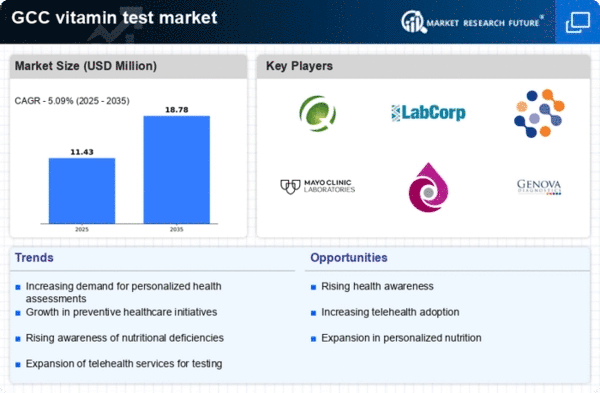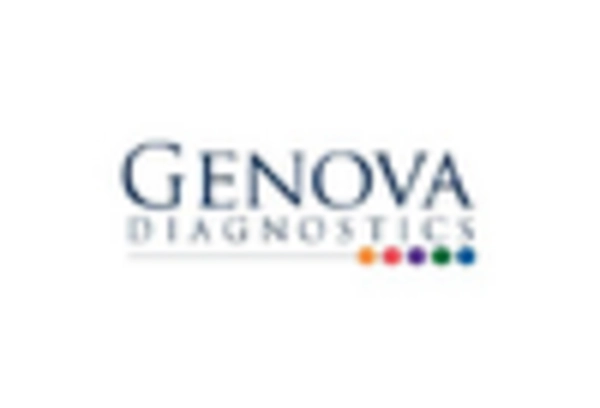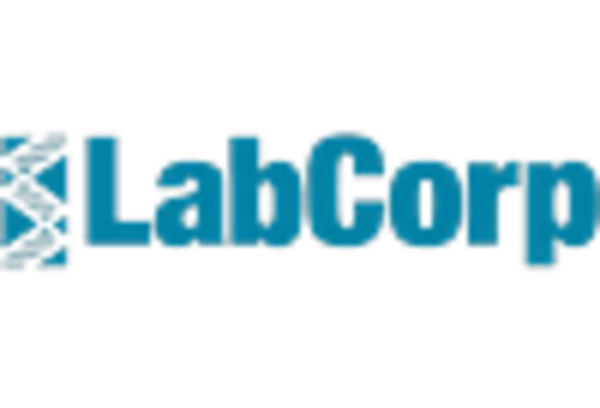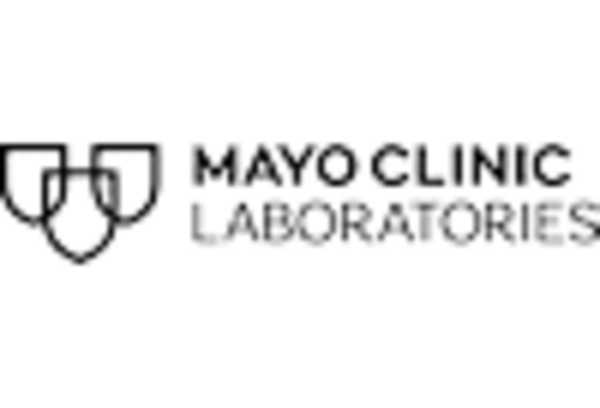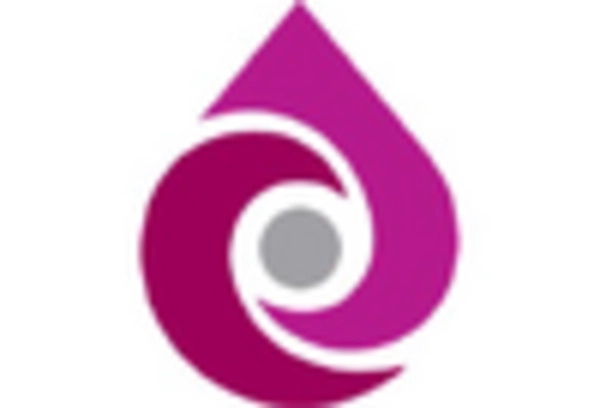Technological Advancements in Testing Methods
Technological advancements are revolutionizing the vitamin test market, enhancing the accuracy and convenience of testing methods. Innovations such as mobile health applications and advanced laboratory techniques are making it easier for consumers to access vitamin testing services. The introduction of point-of-care testing devices has also streamlined the process, allowing for quicker results and increased consumer engagement. The vitamin test market is likely to benefit from these advancements, as they cater to the growing demand for efficient and user-friendly testing solutions. Recent market analysis indicates that the adoption of these technologies could lead to a market growth rate of approximately 20% over the next five years. As technology continues to evolve, it is expected to play a crucial role in shaping the future of the vitamin test market.
Growing Interest in Preventive Health Measures
The vitamin test market is witnessing a surge in interest surrounding preventive health measures, as consumers become more proactive about their health. This trend is characterized by an increasing willingness to invest in health screenings and tests that can identify potential deficiencies before they lead to serious health issues. The vitamin test market is capitalizing on this shift, with many companies offering comprehensive testing packages that include a range of vitamins and minerals. Recent surveys indicate that approximately 70% of consumers in the GCC region are now prioritizing preventive health measures, which is likely to drive demand for vitamin testing services. This growing focus on prevention could result in a market expansion of around 25% by 2028, as more individuals seek to take charge of their health through informed decision-making.
Increasing Demand for Personalized Health Solutions
The vitamin test market is experiencing a notable shift towards personalized health solutions, driven by consumers' desire for tailored health insights. Individuals are increasingly seeking specific information about their vitamin levels to optimize their health and wellness. This trend is reflected in the rising sales of at-home testing kits, which have surged by approximately 30% in the last year alone. The vitamin test market is adapting to this demand by offering more comprehensive testing options that cater to individual needs. As consumers become more aware of the importance of micronutrients, the market is likely to see further growth, with projections indicating a potential increase in revenue of up to $500 million by 2027. This shift towards personalization is reshaping the landscape of the vitamin test market, making it a critical driver of growth.
Rising Incidence of Lifestyle-Related Health Issues
The vitamin test market is being significantly influenced by the rising incidence of lifestyle-related health issues, such as obesity and diabetes, which are prevalent in the GCC region. As these conditions become more common, there is a growing recognition of the role that vitamins and minerals play in disease prevention and management. Health professionals are increasingly recommending vitamin testing as part of routine health assessments, which is likely to drive demand within the vitamin test market. Recent data suggests that nearly 40% of adults in the region are at risk of vitamin D deficiency, prompting healthcare providers to advocate for regular testing. This trend indicates a potential market expansion, with estimates suggesting a growth of around $300 million by 2026, as more individuals seek to understand their nutritional status and make informed health choices.
Government Initiatives Promoting Nutritional Awareness
Government initiatives aimed at promoting nutritional awareness are playing a pivotal role in the vitamin test market. Various health campaigns and educational programs are being launched to inform the public about the significance of vitamins and minerals in maintaining overall health. For instance, recent studies indicate that nearly 60% of the population in the GCC region is unaware of their vitamin deficiencies. In response, governments are investing in public health initiatives that encourage regular testing and monitoring of vitamin levels. This proactive approach is expected to enhance the vitamin test market, as more individuals seek testing services to align with government recommendations. The potential for increased testing frequency could lead to a market growth rate of approximately 15% annually, further solidifying the importance of government involvement in health education.


